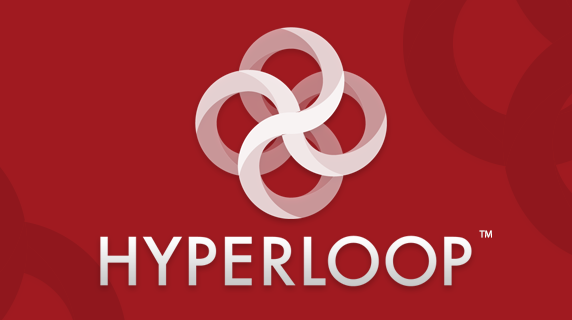[May 2017 update: Hyperloop is now a part of our FREE Indie plan, and includes support for iOS, Android and Windows!]
Today, after three-odd years in the lab (including almost a year in public beta), we’re taking the wraps off Hyperloop. Wait–make that:
WE’RE TAKING THE WRAPS OFF HYPERLOOP!
What is Hyperloop? We think of it as Titanium on rocket fuel.
Titanium, as many know, pioneered the ability to turn good old lovable JavaScript into binary, native apps that run on any major mobile platform, with no hybrid compromise. By providing a simple, yet powerful cross-platform API, Titanium lets you build multi-platform, native apps in a fraction of the time it would take to build for each platform separately.
But of course there are always some APIs that are distinct to the OS and not covered by the Titanium API set. To use these capabilities, you needed to build custom Titanium modules in the native OS language. (We provide some of these modules; our Marketplace provides lots of others from community members.)
With Hyperloop, the need for OS-specific modules disappears. That’s right: Hyperloop lets you access every single native API on iOS and Android, all via JavaScript. What happens as the platform vendors release new versions and APIs? Those too are instantly available via Hyperloop. This means you get all the extraordinary cross-platform power of Titanium, plus the ability to access any specific native API just as if you were building through the native SDKs—and to do it all in a language you know and love: JavaScript.
I want to thank all our teams who’ve made Hyperloop possible. I want also to recognize a few key members of our dev community, whose active engagement across GitHub and Jira contributed mightily to Hyperloop’s final push. These folks are Michael Gangolf, Pier Paolo Ramon, and Brian Garcia– our thanks to each of you!
Added to our recent announcements of App Designer and App Preview, Hyperloop crowns what has been a terrific summer of innovation. We’re excited to see the kinds of innovations these products unleash across our customers and users. (For installation instructions and other details on the 5.4.0 GA release, see the release notes.)
Oh, and yes: we’ve got even more cool stuff in store…
FAQs
Will classic Titanium modules continue to be supported?
Yes, existing Titanium modules (built with Java for Android and Objective-C for iOS) will still be supported by the SDK.
What is Hyperloop’s relationship with Swift?
Prior to Hyperloop, the only way to develop native iOS modules for Titanium was to use Objective-C. But with the release of Hyperloop, we not only support full, native access to the platform SDK from JavaScript, you can also mix Swift (as well as Objective-C) classes in your apps, allowing you to directly access them from JavaScript.

Follow us on social